Table of Contents
ToggleWhen was Abraham Lincoln born?
Abraham Lincoln was born in 1809.
Where was Abraham Lincoln born?
Abraham Lincoln was born in Hodgenville, Kentucky.
How old was Abraham Lincoln when he became president?
Abraham Lincoln was elected at the age of 52.
What years was Abraham Lincoln president?
Abraham Lincoln was president from 1861-1865.
When did Abraham Lincoln die?
Abraham Lincoln died at the age of 56 in 1865.
How did Abraham Lincoln die?
He was assassinated.
Abraham Lincoln was the 16th American President, from 1861 to 1865. It was during his administration that the American Civil War occurred. This was a conflict caused by the southern states’ refusal to accept Lincoln’s victory in the 1860 presidential election.
Lincoln is also known as the President who issued the Emancipation Proclamation, which freed enslaved African Americans in the United States.
Childhood and Adolescence
Abraham Lincoln was born on February 12, 1809, on a farm near the city of Hodgenville, in the state of Kentucky, United States. He was one of the three children of Thomas Lincoln and Nancy Hanks Lincoln. Abraham’s brothers were named Sarah and Thomas. Unfortunately, his brother died in childhood.

Get Smarter on US News, History, and the Constitution
Join the thousands of fellow patriots who rely on our 5-minute newsletter to stay informed on the key events and trends that shaped our nation's past and continue to shape its present.
Lincoln’s Family
The Lincoln family owned some land in Kentucky, from which they supported themselves, but problems with their ownership led Thomas to lose it to the state. For this reason, the family moved to the state of Indiana in 1816, and there Thomas held different jobs as a way to support his family.
Lincoln’s family suffered a severe blow when Nancy Lincoln, Abraham’s mother, died in 1818. The cause of death is believed to have been the “milk disease,” a disease that affects people who consume milk or beef contaminated by some toxin. In the case of Nancy, there is talk of tremetol, a toxin found in a plant in the Indiana region.
This blow was partly remedied when Thomas Lincoln got engaged again with Sarah Bush Johnston, a Kentucky widow. It is said that her relationship with Abraham was very good, and that she was a great encourager of young Abraham’s reading habit. During this period of his life, much of Abraham’s learning was the result of his own efforts, as he had minimal formal education.
Lincoln in Indiana
In Indiana, the Lincoln family also owned land, and Abraham helped his father. However, working on the farm was not a job that Abraham liked. He preferred reading and studying. His first job was on a ferry, and after he returned, his father decided to move to Illinois.
In 1831, Lincoln moved to Nova Salem, residing there for six years and performing different trades in that city. In 1832, he even joined the army to participate in a conflict against Native Americans, but he was never sent to combat.
Early political and legal career
In the 1830s, Lincoln decided to enter politics. Before enlisting, he had already expressed his desire to occupy a position in local politics. In 1832, he tried to join the Illinois General Assembly but failed. Two years later, he ran for the Illinois House of Representatives.
Lincoln’s candidacy came from the Whig Party and was successful. Lincoln served as a representative in that house from 1834 until 1842, during which time he divided his time between politics and law (he began to study law in 1836). In 1846, Lincoln’s political career leaped with his election to the United States House of Representatives in Washington.
Lincoln in Washington
Lincoln served in Washington until 1849 and did not seek re-election. At the time, he had already expressed his views against the expansion of slavery into new territories (new lands conquered or purchased by the United States). He was a staunch critic of the Mexican-American War. After his tenure, Lincoln devoted himself to his career as a lawyer.
Lincoln’s Presidency
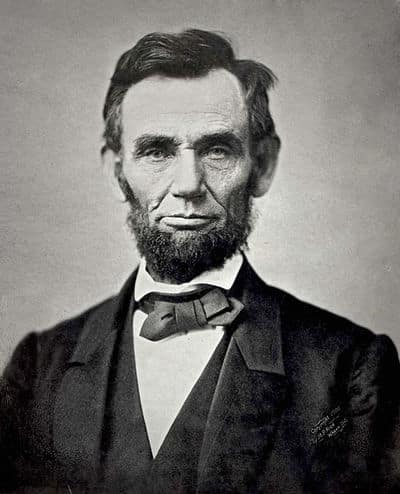
The 1850s were a decade of tension in American history. The debate on slavery was central, especially on the question of its use in the new territories. Northerners did not agree with the expansion of slavery to other states, and southerners were advocates of slavery across the country.
Kansas-Nebraska Act
The debate reached a critical point when the Kansas-Nebraska Act was passed, which allowed slavery to be brought to the territories of Kansas and Nebraska based on the individual freedom of citizens.
This 1854 law led to a strong division within the Whig Party, prompting dissidents and abolition supporters to come together in a new party: the Republican Party.
Lincoln was one of the great names of the Republicans. Between 1858 and 1859, Lincoln returned to politics to run for the Senate but was defeated by Stephen A. Douglas. In 1860, the Republican Convention selected Abraham Lincoln as the party’s candidate for President of the United States.
It was a tense dispute, but the Democratic vote was split between Stephen A. Douglas and John C. Breckinridge. There was also a fourth candidate, named John Bell, but the result was Abraham Lincoln’s victory. The Republican candidate received 40% of the vote and 180 of 303 electoral votes.
American Civil War
Abraham Lincoln was the President of the United States for the entire duration of the American Civil War (1861-1865).
Abraham Lincoln’s victory displeased the southern states because they opposed the expansion of slavery into the new territories. Lincoln did not have the most radical views, but he was nevertheless viewed with disgust by the southerners, who called him a radical abolitionist. The southern states then began threatening to secede from the Union that formed the United States.
Confederate States of America
Abraham Lincoln said he would respond militarily to any attempt at separatism, but the threat had no effect. In 1861, South Carolina, Alabama, Florida, Mississippi, Georgia, and Texas declared their separation from the United States. These states announced the formation of the Confederate States of America and appointed a new president.
The conflict started when Confederate troops attacked a Union fort in North Carolina in 1861. Lincoln’s response came with the sending of 80,000 troops to the southern United States. That was the beginning of the American Civil War, the biggest conflict in American history, responsible for the death of 600,000 people.
This conflict lasted until 1865 and ended with the victory of the Northerners. The southern defeat meant that the Confederate states were reinstated to the Union.
In the course of the conflict, Lincoln made a decision that changed the history of the United States: he proposed the emancipation of slaves in 1863. This law became a constitutional rule in 1865 with the 13th Amendment.
The assassination of Abraham Lincoln
After the conflict, the United States started a period of reconstruction, the restitution of political rights, and the consolidation of the emancipation of the African Americans. Lincoln had a more moderate position, but many of the Union’s congressmen demanded heavy punishments for southerners.
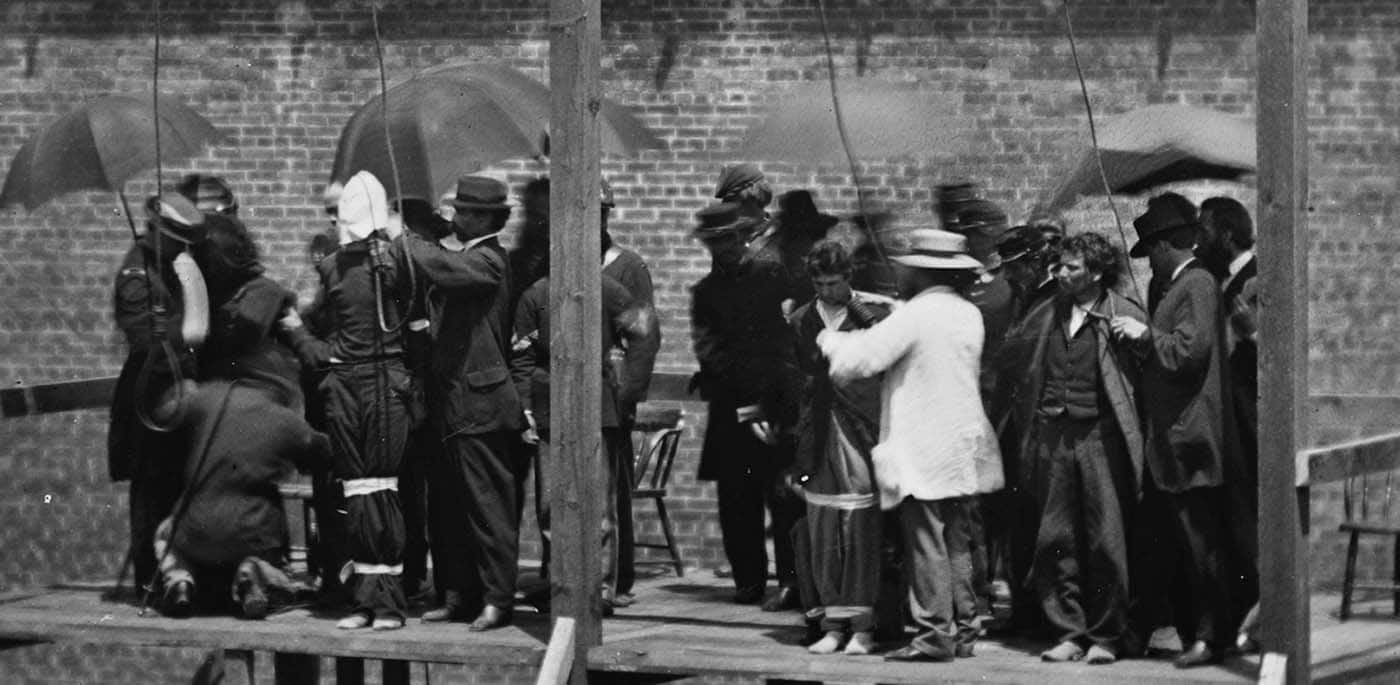
These issues were debated in Lincoln’s second presidential term. Lincoln’s second term began in 1865 with his victory in the 1864 presidential election, when he defeated Democrat George B. McClellan by a significant margin.
The wounds of the war were still many, and this became visible with the conspiracies that arose against the President. Former Confederate articulated a plan of kidnapping, which was not advanced, and an assassination plot.
Assassination of Lincoln
The plan to assassinate the President was put in place by John Wilkes Booth, an actor and former spy for the Confederates. He teamed up with others to plot Abraham Lincoln’s death, putting that plan into action on April 14, 1865. At the time, Lincoln was in a theater in Washington.
Lincoln was shot in the head and died of gunshot wounds on April 15. The killer, John Wilkes Booth, was found days later on a farm in Virginia and was killed after resisting arrest. Another eight people were arrested for participating in the conspiracy against the President, and of these, four were sentenced to death by hanging.
Leadership lessons from Abraham Lincoln
Abraham Lincoln is an example of a good leader, an exemplary politician, and a very reliable economist. He led during one of the United States’ biggest crises, so he had to make the toughest decisions.
In his first cabinet, President Lincoln included his rivals in the Republican nomination: Edward Bates, Salmon Chase, and William Seward. Each of these candidates was better known and had more accomplishments than Abraham Lincoln.
But he put the crisis facing the country first and was determined to find the most capable men to help him lead the nation. He earned everyone’s respect, and he never lost sight of the enormous challenges he faced.
Without any executive experience, he led a team of rivals during the greatest American crisis. Thanks to his skills, the slavery system that used to flourish in the United States disappeared. The welfare of its citizens has risen to the point that it is now a superpower.
So, what can we learn from him, and what applies today?
1. The importance of being prepared to face life.
This former President of the United States was born into a family of carpenters and farmers, but he grew up into a boy who liked reading too much. In addition to helping his father, his childhood was spent devouring books. Until he finally joined a political party and managed to become a member of parliament, and successfully won the presidential elections.
From this attitude, we can conclude that learning is an infinite process and has no limits. So try to keep learning, even if your education is not from what is taught in school. Because the lessons can not only be obtained from formal schools, but also from the environment, and of course, from various types of books.
2. Always be close to your subordinates or followers.
Many leaders prefer to do everything on their own. They are even reluctant to ask their subordinates for any kind of help. That is something that made Abraham Lincoln different from others.
While serving as President, he spent more time away from the White House. All the employees and soldiers who were preparing for the Civil War were received. And not only that, but Lincoln also often invited his subordinates and even the general public simply to chat.
If you want to be a good leader, try to imitate this attitude of Abraham Lincoln. Because then, indirectly, your sense of trust between your environment and your subordinates will increase.
3. Use the power of persuasion.
Abraham Lincoln once said, “I destroyed my enemy when I made them my friends.” From his words, it can be concluded that Lincoln prioritized persuasive approaches over violence. A subtle and peaceful approach is the only way he was able to solve problems.
The advantage is that subordinates will not hate you if you follow this Lincoln method. Because, indeed, in this age, leading through violence is not justified and even ineffective. Try to talk informally with subordinates if there are office problems that have not been resolved. Solve these problems together with caution.
4. Empathy
Lincoln excelled at being able to sense the needs and abilities of others. Because he was so good at putting himself in the shoes of others, he found the most effective way to connect with people. This ability earned him lifelong supporters.
5. Try always to be a motivator.
Lincoln is listed as an inventor who has a patent in the field of technology. His invention is a tool that can lift a boat in shallow water and through a barrier in a river. Not only that, he was even tech-savvy, not using a telephone, preferring to use the telegraph for communication purposes with the US military generals at the time.
Well, he always encouraged his subordinates to think sophisticatedly and to come up with ideas typical of technological progress. That is why he was loved by many people with who he worked. He was a good leader in trying to make everybody smarter by having high innovation. Everything was done for the advancement of American citizens.
Conclusion
Abraham Lincoln is still a major figure in American collective memory today, both through his enlightened and inflexible opinions on the abolition of slavery and through his government in times of war. He is arguably the most written American President in all aspects of his life, including the most private. A statue in memory of Abraham Lincoln is also on display in New York on Union Square, and there is also a magnificent memorial in Washington, in West Potomac Park.
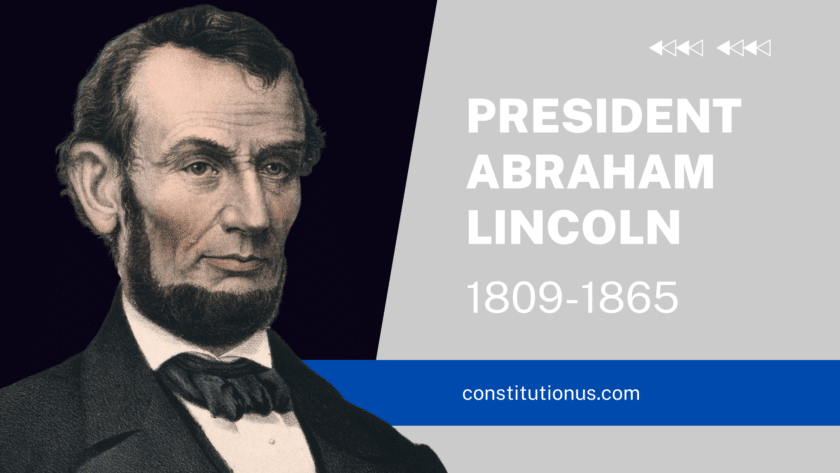

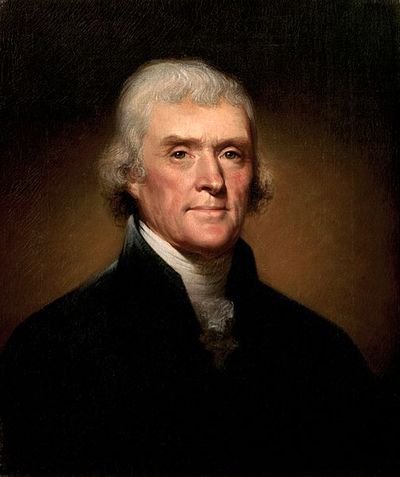
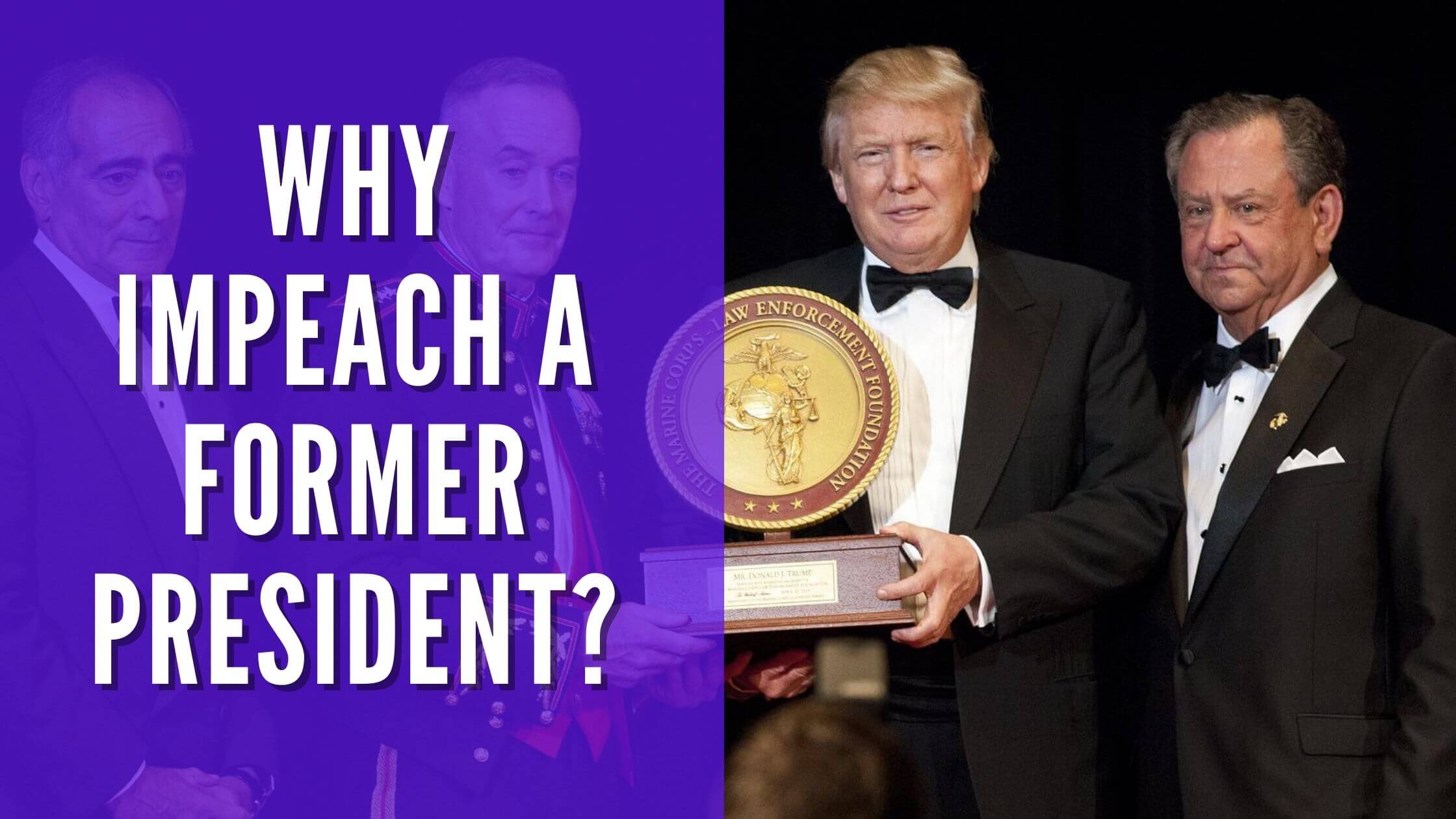








2 Responses
Discussion of the Reconstruction would be in order, as Lincoln was of a mind to bring the South peacably back to the Union whereas Stanton was vindictive. The asassination of Lincoln caused Stanton to prevail, as Johnson wasn’t strong enough to counter Stanton and his ilk. See how Wilson compares to Lincoln and Lloyd George, and Clemenseau, compares to Stanton during to the Versailles Treaty; the results of Reconstruction and Versailles were disasterous.
r
The section “Confederate States of America” states that the [Civil War] conflict started in 1861 when Confederate troops attacked a Union fort in North Carolina. That would be a Union fort in *South* Carolina (Fort Sumter, in Charleston harbor). No?